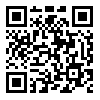Volume 9, Issue 3 (spring 2023)
IJRN 2023, 9(3): 47-54 |
Back to browse issues page
Download citation:
BibTeX | RIS | EndNote | Medlars | ProCite | Reference Manager | RefWorks
Send citation to:



BibTeX | RIS | EndNote | Medlars | ProCite | Reference Manager | RefWorks
Send citation to:
Jamehbozorgi L, Farmahini Farahani M, Poorsaadat L, Moslemi A. The effect of education and telephone follow-up (tele-nursing) on self-care and quality of life of patients with multiple sclerosis: A clinical trial study. IJRN 2023; 9 (3) :47-54
URL: http://ijrn.ir/article-1-734-en.html
URL: http://ijrn.ir/article-1-734-en.html
Assistant Professor, Department of Nursing, School of Nursing, Arak University of Medical Sciences, Arak, Iran.
Abstract: (2850 Views)
Introduction: Multiple sclerosis (MS) is a chronic and progressive disease of the central nervous system that can have a devastating effect on the patient's quality of life. Self-care behaviors is one of the effective factors in preventing MS symptoms and recurrence. The purpose of this study was to determine the impact of patient education and telephone follow-up (telenursing) on self-care and quality of life of patients with MS.
Methods: This clinical trial study was conducted on 70 patients with MS in the MS Association of Arak city in 2021. The subjects were selected by convenience sampling method and assigned randomly into intervention and control groups (N=35 per group). Data were collected through Miller's self-care questionnaire and quality of life questionnaire for patients with MS by both groups before and after the intervention. For patients in the intervention group, educational sessions were held one day a week for two weeks, then telephone follow-up was conducted for 12 weeks. Data were analyzed by using SPSS-20 software and chi-square and independent and paired t-test.
Results: The study findings showed before the intervention, there was no statistically significant difference between the average score of self-care and quality of life of the two groups (p<0.05), but there was a significant difference between the mean self-care scores of the patients in the control and experimental groups after the intervention (p=0.031). Also, there was a significant difference between the mean scores of the patients' quality of life in the control and experimental groups after the intervention (p=0.028).
Conclusions: The findings of the present study showed that education and telephone follow-up on self-care and quality of life of patients MS is effective.
Methods: This clinical trial study was conducted on 70 patients with MS in the MS Association of Arak city in 2021. The subjects were selected by convenience sampling method and assigned randomly into intervention and control groups (N=35 per group). Data were collected through Miller's self-care questionnaire and quality of life questionnaire for patients with MS by both groups before and after the intervention. For patients in the intervention group, educational sessions were held one day a week for two weeks, then telephone follow-up was conducted for 12 weeks. Data were analyzed by using SPSS-20 software and chi-square and independent and paired t-test.
Results: The study findings showed before the intervention, there was no statistically significant difference between the average score of self-care and quality of life of the two groups (p<0.05), but there was a significant difference between the mean self-care scores of the patients in the control and experimental groups after the intervention (p=0.031). Also, there was a significant difference between the mean scores of the patients' quality of life in the control and experimental groups after the intervention (p=0.028).
Conclusions: The findings of the present study showed that education and telephone follow-up on self-care and quality of life of patients MS is effective.
Type of Study: Research |
Subject:
Rehabilitation Nursing
Received: 2022/07/26 | Accepted: 2022/12/31 | Published: 2023/02/23
Received: 2022/07/26 | Accepted: 2022/12/31 | Published: 2023/02/23
Send email to the article author
| Rights and permissions | |
 |
This work is licensed under a Creative Commons Attribution-NonCommercial 4.0 International License. |





